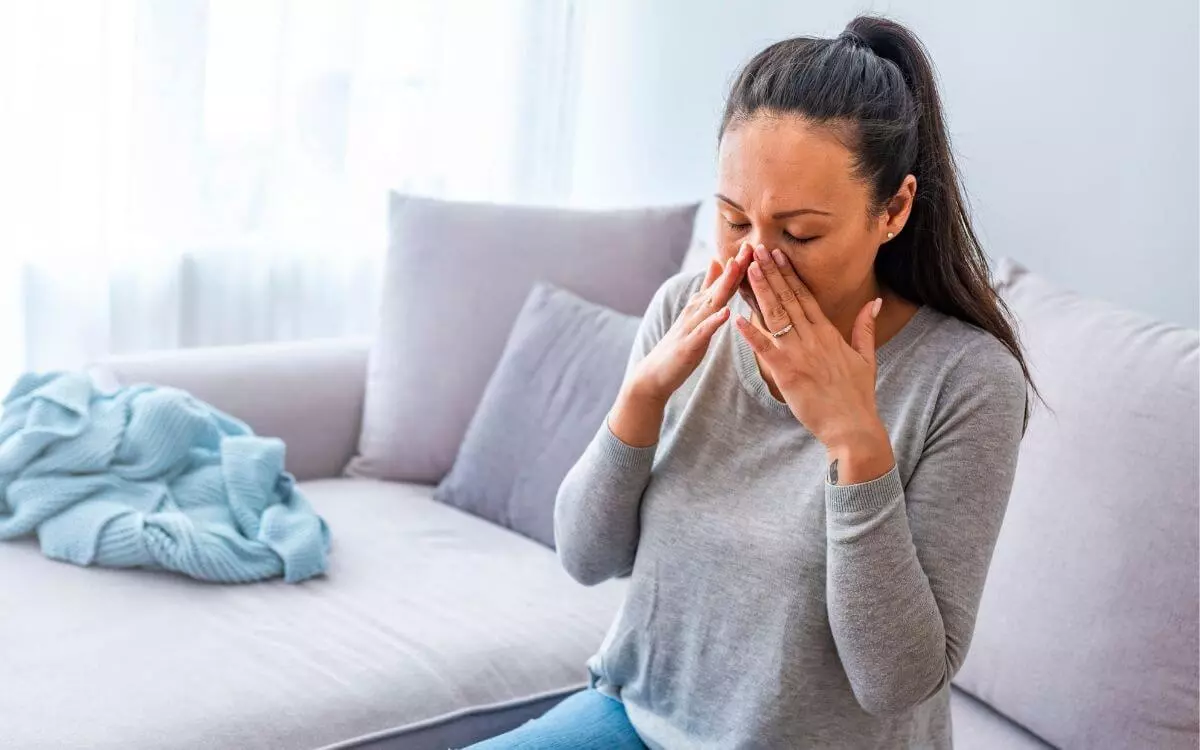Helping my wife with chronic pain. How do I support my wife with two chronic illnesses?
How am I helping my wife with chronic pain?
When I married this beautiful Italian girl, I never expected my life to turn upside down, however, helping my wife with chronic pain made my marriage flourish despite the hardship her chronic conditions brought.
I gained a tremendous amount of knowledge. My personal experience in supporting my wife with endometriosis and fibromyalgia taught me lessons I wouldn’t normally get if my wife wasn’t chronically ill.
I’ve learned not only about endometriosis and fibromyalgia but also about general anxiety, panic disorder, OCD, depression, and suicide.
At the very beginning, helping my wife with chronic pain seemed impossible, because I didn’t know where to start. I had absolutely no knowledge about all the above conditions and disorders.
So, how did I do it? How did I help my wife with chronic pain?
I focused on a holistic approach rather than medication, hormones, or medical procedures. I realized that instead of trying to “fix” my wife’s health I had to change my approach to her support in a holistic way.
Here’s what you need to know:
- Communicate with your partner.
- Understand her condition.
- Believe in your loved one.
- Accept you can’t erase her pain.
- Discuss sexuality with her.
- Avoid canceling plans.
- Take on more household tasks.
- Ask for help when you need to.
- Listen to her complaints.
- Learn to be more patient.
- Don’t become her carer.
- Attend her support groups.
- Attend her appointments.
- Acknowledge your own needs.
Aside from all the above tips, you need to openly address the financial impact chronic illness has on your relationship.
You need to discuss it and come up with a plan. I strongly suggest you start an online business. Blogging is the safest and best way to improve your life.
The new normal…
As I mentioned above, I focused on learning how to implement a holistic approach in order to help my wife with chronic pain.
The reason being is a fact that she tried a lot of painkiller medications, she’s been on hormones for 18 years of her life and had surgery for her stage IV deep infiltrating endometriosis.
She tried it all and we both learned, that no amount of painkillers, hormones or surgical procedures could help her long-term.
Painkillers don’t work in the long run, they give plenty of side effects, and after a while they wear off so your partner has to up the dose, giving more side effects.
More side effects mean more health problems, eventually, your loved one gets addicted to these drugs, reaching the point when she can’t take a higher dose, doctors will not prescribe her more drugs knowing the risk. She gets stuck!
Hormones play with the person’s mind. They make them feel like a zombie, only hiding the real reasons for why your partner experiences chronic pain.
So what is the solution to helping my wife with chronic pain?
The best thing you can ever give to a chronically ill partner is your unconditional love and support.
What works for one person may not work for the other, but I’ve learned after speaking to countless women, that their supportive partner is the best way to the management of their illness.
It just confirms what I have done for over a decade helping my wife with chronic pain. So, let’s expand more on the useful tips that help you both manage the challenges that chronic illnesses and pain bring…

Communicate with your partner.
Like any healthy relationship, you need to communicate with each other. This is a no-brainer, right?
It’s easier said than done when your partner suffers from chronic pain. I am not talking about back pain that people experience because they worked too hard and believe it is chronic.
That’s not chronic. I’m talking about pain as a symptom of chronic conditions like fibromyalgia and endometriosis.
The difference between acute and chronic pain is that acute pain goes away, and you can go on with life as usual. Chronic pain, however, is pain that is ongoing and usually lasts longer than six months.
Pain requires an understanding of what triggers it. Only when communicating with your partner do you learn what are her triggers.
Although there is a vast range of triggers in a pain cycle, the most common trigger for most people it’s stress.
Communicate with your partner, it is going to allow you to avoid it, and manage to go through any obstacles that chronic pain will cause.
Understand her condition.
Behind chronic pain, there’s a chronic condition. It might be chronic stress or a chronic illness such as endometriosis or fibromyalgia.
Maybe your partner suffers from multiple sclerosis, lupus, or a different condition.
Whatever it is, learn about it.
I’ve done a lot of research over the last decade, I have done polls, run surveys asked questions for medical professionals. But despite all the knowledge, I will never be able to fully understand what my wife is going through because I am not in her situation.
Regardless, more understanding helps you help your partner better.
Read up on as much as possible, and speak to your partner about what you read to find out what does and does not apply to her.
Believe in your loved one!
Pain is invisible and a huge number of sufferers have a very hard time convincing people that what they are feeling is real. Listen to your loved one, believe her and try to understand.
Believing alone can be a tremendous help.
Helping my wife with chronic pain means believing her symptoms. Invisible illnesses like endometriosis and fibromyalgia are difficult to diagnose because of the very fact that doctors don’t see their patient’s pain.
Despite women’s pleads, female problems are often marginalized.
Oftentimes, general practitioners blame their symptoms and pain on mental health problems. This isn’t right, but it happens.
Be better, be different, be the one who she can trust and rely on to open up. Believe her.
Accept you can’t erase her pain.
I used to be consumed with the thoughts to “fix” my wife’s symptoms, but I had to accept the fact that I couldn’t.
My wife’s pain is likely to never go away. There’s nothing I can possibly do to change that fact. I have learned to spend my energy on supporting my wife in other ways.
This very article explains in a nutshell how I do it.

Discuss sexuality with her.
Especially if your partner has endometriosis. For many couples, sex isn’t an option. Pain during sexual intercourse can be unbearable for women who suffer from endometriosis. In most cases, even orgasm alone is painful.
Chronic pain does not skip love-making. Make plans for sexual encounters, however blunt it sounds, in order to fit it into your partner’s schedule as it depends on her flare-ups of daily pain.
Don’t be afraid to experiment with new positions if her favorite position now causes too much pain.
There are ways of working things out, as long as you discuss sexuality with her.
Avoid canceling plans…
I hear my wife say “darling, you know it’s not up to me”, however, I also hear her say afterward “darling, we should have gone, my pain is no different at home”…
It’s a tricky subject. You don’t want to sound selfish and tell encourage her to go despite pain, even though you know that being around people can help her distract from the pain.
Take on more household tasks.
My wife isn’t disabled. Yes, she has two chronic conditions that stop her from taking on many tasks, but she is still an independent woman.
Sometimes, however, she can be in so much pain, or her symptoms like brain fog or fatigue, make her trying to get out of bed unbearable, and trying to survive a day is a full-time job.
In situations like that, I have to take on additional tasks I wouldn’t normally do.
Sometimes you may become her chef, her cleaner, her nurse, her advocate, a mother for the kids, and more…
Be aware of that. You may take on more tasks that can be tiring, frustrating, never-ending. It may not be easy, but imagine yourself in her position to see it from her perspective. It’s WAY harder for your partner than it is for you.
Ask for help when you need to.
I get that, you’re the man in the relationship, but know that there is no shame in asking for help.
It can be hard to resist the urge to do everything yourself in order to help your partner. In my personal experience, I used to hide what I felt.
That wasn’t helpful because I could take only so much until my face started to show it.
No matter how much I tried to hide it, my wife was good at recognizing that something wasn’t right. Helping my wife with chronic pain wouldn’t be possible without asking for help.
My mother-in-law had to stay with my wife whenever she felt terrible and I had no way of taking time off work.
But it’s not always about your partner. You need to ask for help whenever there’s something you cannot do by yourself. Whenever you feel overwhelmed you need to time away from the I’ll partner in order to recharge batteries.
In moments like this, you need support from a family member or professional.
Don’t be afraid to ask for help.

Listen to her complaints…
I hate seeing my wife in pain, not only physical, but also emotional, and I hate hearing about how much it hurts her.
But I found that listening to her complaints helps her relieve some tension. Aside from her mother, I’m the only person in her life who can she open to. Nobody else understands the importance of that.
Vocalizing these invisible symptoms is a great and important way of letting go of negative emotions.
By sharing her struggles my wife doesn’t feel alone in this. It is really one of the important things you can do for your partner.
So, toughen up my friend, because listening to someone in pain is nowhere near as difficult as having to experience the pain yourself. I hope that makes sense…
Learn to be more patient.
Helping my wife with chronic pain means being patient.
For many people suffering from chronic pain coping with high amounts of it has plenty of consequences, including a short temper or irritability.
Do your best not to take things personally. This is something that your partner really struggles with, try and understand that these short episodes of anger and frustration may be to do with your partner’s pain, not any annoyance with you.
Don’t make any permanent decisions for the temporary emotions of your partner.
Don’t become her carer.
Unless your partner is bed-bound, she’s still independent. She wants to be.
There’s a difference between caring for your partner and being a carer, because you are still a team, even if sometimes your role will resemble that of a caregiver.
I’m a caregiver for disabled young adults, but when I come home, I’m a husband who cares for his wife, not a carer.
There’s a difference.
My wife is still an independent person who tries to keep our relationship happy and healthy. This is a very important thing to remember. Be there with my partner, rather than for her.
Attend her support groups!
I did. I attended all my wife’s endometriosis support groups, and mental health support groups.
Aside from that, I joined every of her endometriosis, and fibromyalgia online group meetings.
I do all that because my life is a part of hers, she deserves my interest and my full attention.
I noticed, especially whilst attending my wife’s endometriosis support groups, that there were absolutely no men by their sides. It seemed odd because they could learn ten times more at one session than from a few days of online research.
Do take an interest, attended her support groups. She’ll be forever grateful.

Attend her appointments.
Like the above, with one huge difference. This kind of attendance is extremely important.
I found that for years my wife was going nowhere with the doctors. They used to brush her female problems off, ignoring her pleads for help and understanding. They did not listen.
Instead, as usual, they kept trying to put in her head that things were in her mind, that she was anxious and depressed. You know the drill…
General practitioners used to try and push pills to stop her from complaining and coming all the time, instead of simply listening to what she had to say.
Only when I joined her appointments, their tune immediately changed. Not only because I’m a man, but also because I did not let them neglect my wife, I confirmed her symptoms and made them realize that they should just listen.
I was extremely frustrated and had enough of their wrong approach, but by being calm, yet very assertive, I’ve changed the game!
Not only that, the same applied to her boss. She struggled at work until I decided to call her manager and organized a face-to-face meeting.
Things began to change because they had a confirmation of their employee’s struggles. I needed to be there to make them realize that my wife wasn’t lying about her symptoms, pain, and illness.
Acknowledge your own needs.
Lastly, if you don’t take care of yourself, you will not be able to take care of your loved one. Helping my wife with chronic pain requires taking care of my own needs.
Since she got the diagnosis of endometriosis, and later on with fibromyalgia, I began to focus my whole attention on her.
I neglect my own needs, stopped going to the gym entirely, and I used to go 7 days a week.
I stopped enjoying my life because I thought it wasn’t fair for me to live my life whilst my wife was struggling to get out of bed. To survive a day, it was a full-time job for her. How could I leave her alone?
But I’ve learned over time that it was counterproductive and made me feel grumpier, more impulsive, moody.
Naturally, it affected her.
I’ve learned that I had to take care of myself first. I had to set some gentle rules. It made our marriage so much better, as none of us felt guilty over the other anymore.
I hope that helps.
Remember that you can always reach me under worryhead@email.com where I do my best to respond to every email.
Take care of one another. Ciao!


About Me
Hi, I’m Lucjan! The reason why I decided to create this blog was my beautiful wife, who experienced a lot of pain in life, but also the lack of information about endometriosis and fibromyalgia for men…
